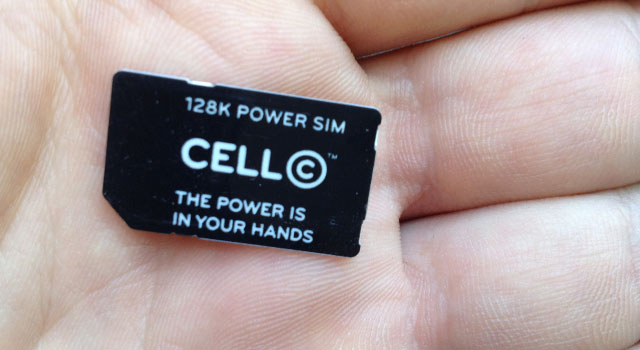
MTN South Africa has won its latest battle with Cell C at the Advertising Standards Authority (ASA), this time after the latter objected to a print advertisement, published in March, in which MTN claimed it was helping “put a dent in unemployment”.
The ad, which was published in the Sunday Times of 16 March — the same edition in which MTN famously penned an open letter to Cell C across a double-page spread — states: “When the unemployment rate keeps rising, it puts massive strain on businesses, the economy and, most importantly, the people of South Africa. That’s why we’re introducing the Mobile Money reseller project.”
The project gives South Africans the opportunity to make money by reselling airtime, with 5% of every amount sold being deposited into their Mobile Money account.
But Cell C was having none of it. It told the ASA that the ad gives the impression that the MTN project is an employment opportunity that will result in significant earnings. It said this impression was exacerbated by MTN’s letter to Cell C in the same edition of the newspaper. This ad referred to MTN being a “major taxpayer who contributes to the employment of thousands of South Africans”, “doing what’s right for the people of South Africa” and being a network that creates lasting wealth for everyone.
Unlike real income, the problem with Mobile Money is that it has limited spending capacity, Cell C argued. It referred to minimum salaries for domestic workers in Gauteng of R1 877/month. For an MTN airtime reseller to make this amount of money, they would have to sell airtime worth R37 540/month, or 750 airtime vouchers of R50 each. Given that customers tend to recharge with amounts of R20 or R30, and often as little as R5, this is an unlikely feat, it said.
It added that MTN, through its website, also offers the option to become a Mobile Money “promoter”, which will earn up to R20 for every person they convince to sign up for Mobile Money. “Such ‘promoters’ will have to sign up 94 new people a month to earn R1 877. In a saturated market, this will be rather difficult,” Cell C argued.
“The reality is that this project does not ‘put a dent in unemployment’, nor does it ‘sustain a regular source of income’. At best, it provides a way in which people can supplement their incomes,” it added. “The overall communication is therefore misleading not only to prospective customers, but also to altruistic high-income consumers who are given an incorrect impression of the reality. In doing this, the respondent is abusing the credulity of low-income consumers.”
In response, MTN said its ad did not deal with the “promoter” initiative, and that this aspect of Cell C’s complaint should be ignored.
It then argued that its ad made clear that the money is earned by selling airtime, and also how much is earned. In the addition, the ad “clearly did not suggest that MTN is offering any kind of formal employment to its customers, and no reasonable reader would interpret it in this manner”.
There was also no suggestion of any minimum guaranteed income, MTN said. “The expectation of a minimum wage as outlined in the complaint is therefore irrelevant.”
In its ruling, the ASA said that MTN’s ad did not leave a reasonable person with any doubt as to what this project entails.
“There is no mention of permanent employment, no use of words such as salary or guaranteed minimum income, and the [ASA] directorate does not agree with the complainant that the words ‘a regular source of income’ in this particular context would create an expectation that the respondent is offering jobs,” it said.
“Similarly, the reference to putting a dent in unemployment cannot be seen in isolation. It has to be interpreted in the context of the advertisement as a whole.”
Any “hypothetical reasonable person” would realise that if they joined the MTN initiative, they would have to resell airtime to earn some money and that they would earn 5% of the value of the airtime sold. By implication, the more airtime they sold, the more they’d earn, and if they did not sell airtime, they would not earn any money.
As result, the ad is not “phrased in a manner which is likely to lead to the opportunity being confused with part time or normal employment” and is not in breach of its code, the ASA said.
“The ad does not encourage people to rely on the Mobile Money reseller project offering alone, or to forego any other employment opportunities,” it said. “While perhaps true that not all would regard this initiative as worth their while, the fact remains that the reader is provided with enough information to make this determination on their own.”
The ad was therefore not misleading and Cell C’s complaint was dismissed. — (c) 2014 NewsCentral Media




